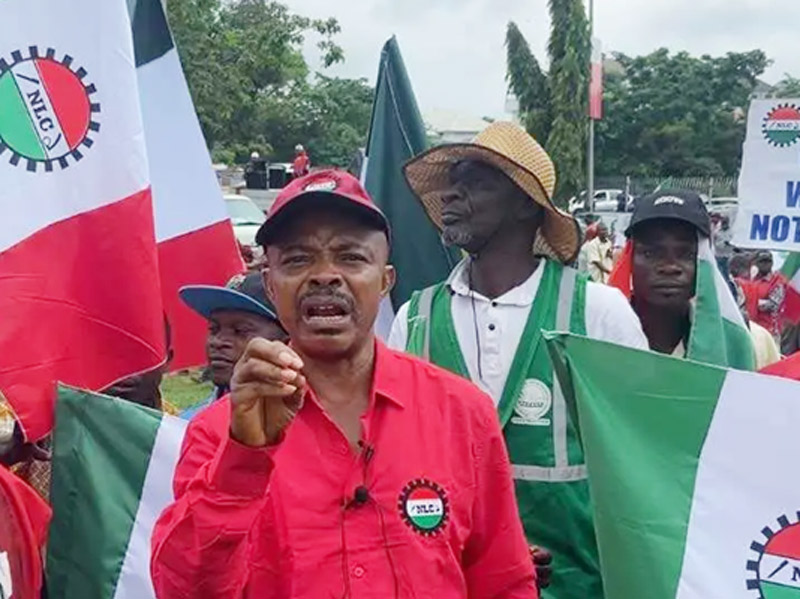The labor landscape in Nigeria recently witnessed a dramatic shift as the Nigeria Labour Congress (NLC) and the Trade Union Congress (TUC) National Executive Council (NEC) announced the suspension of their nationwide strike for one week. This decision came after intense negotiations with the government, highlighting a critical juncture in the ongoing struggle for workers’ rights and economic stability. In this comprehensive article, we delve into the circumstances leading to the strike, the demands of the unions, the negotiations with the government, and the tentative agreement that led to the suspension.
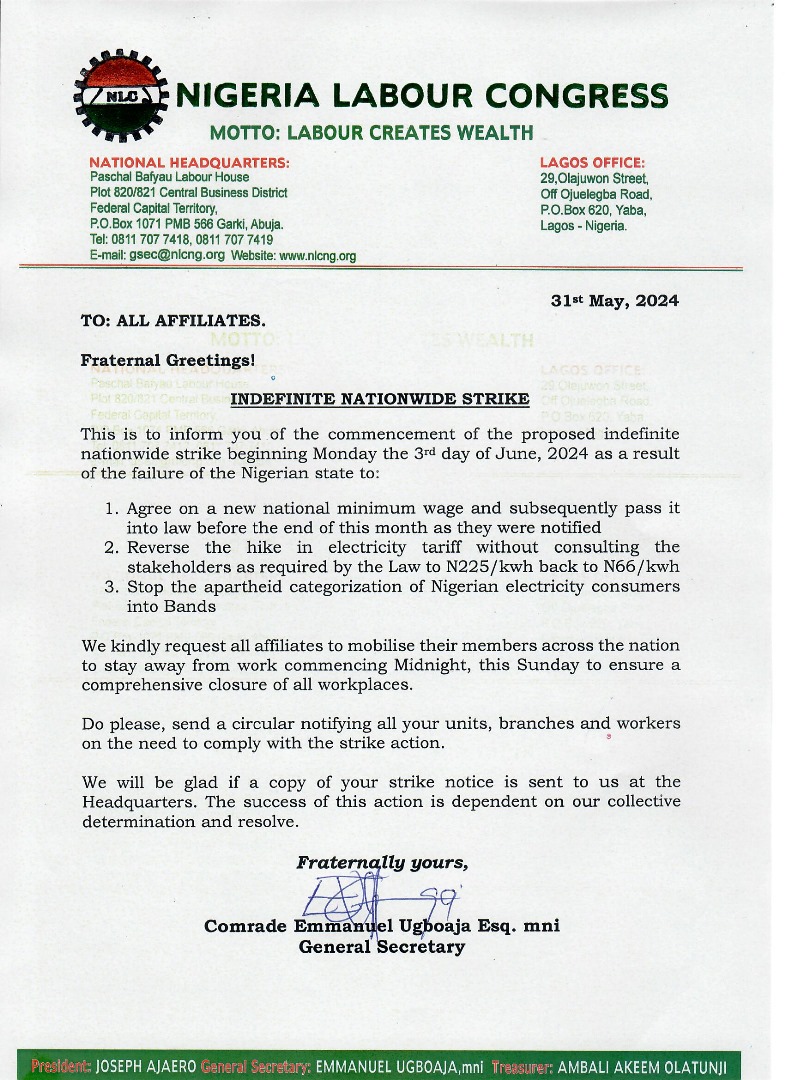
Background to the Strike
The nationwide strike initiated by the NLC and TUC was a response to the government’s removal of fuel subsidies and subsequent economic policies that had a significant impact on the cost of living for ordinary Nigerians. The removal of the subsidy, though intended to reduce fiscal deficits and redirect funds towards infrastructure development, led to an immediate spike in fuel prices. This increase trickled down to the prices of goods and services, exacerbating the already high cost of living and pushing many Nigerians further into poverty.
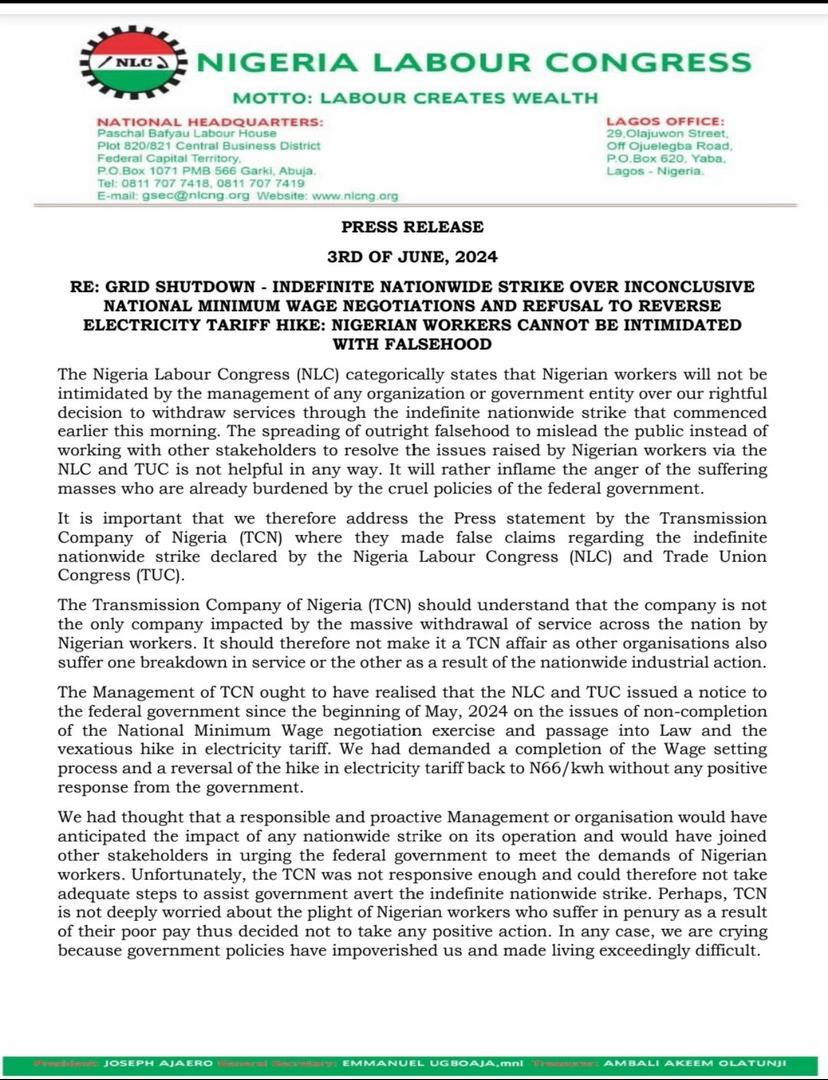
For years, the labor unions had been vocal about the need for a comprehensive economic plan that would shield workers and the vulnerable from such shocks. The sudden implementation of the subsidy removal without adequate palliative measures was seen as a betrayal of trust, leading to widespread discontent and the eventual call for a strike.
The Strike: A Stand for Workers’ Rights
The nationwide strike, which began in earnest, saw significant participation from various sectors, including healthcare, education, and transportation. The unity displayed by the workers was a testament to the deep-seated frustration and the urgent need for change. The strike aimed not only to address the immediate issue of fuel prices but also to highlight broader concerns such as wage increases, improved working conditions, and better social security.
During the strike, major cities experienced a shutdown of essential services, reflecting the unions’ influence and the seriousness of the situation. The public, while inconvenienced, largely supported the strike, understanding the necessity of such drastic measures to secure long-term benefits.
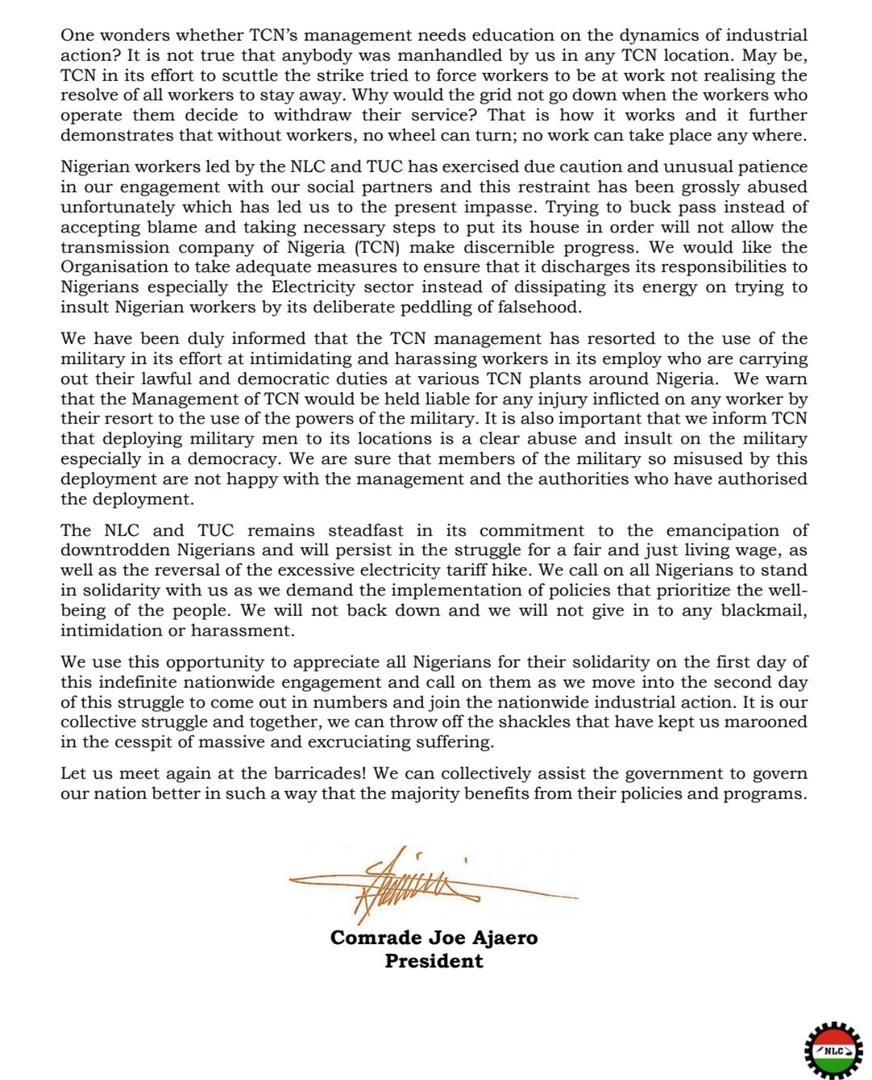
Negotiations: A Battle of Wills
The government’s initial response to the strike was one of reluctance, emphasizing the necessity of subsidy removal for economic stability. However, the pressure mounted as the strike’s impact became more pronounced. The government and union leaders eventually agreed to meet at the negotiation table to find a solution.
Negotiations were tense, with both sides presenting strong arguments. The unions demanded immediate interventions to mitigate the effects of the subsidy removal, including wage adjustments, provision of affordable public transportation, and subsidies on essential goods. They also called for a transparent and accountable mechanism to ensure that the funds saved from the subsidy removal were effectively utilized for the public
good.
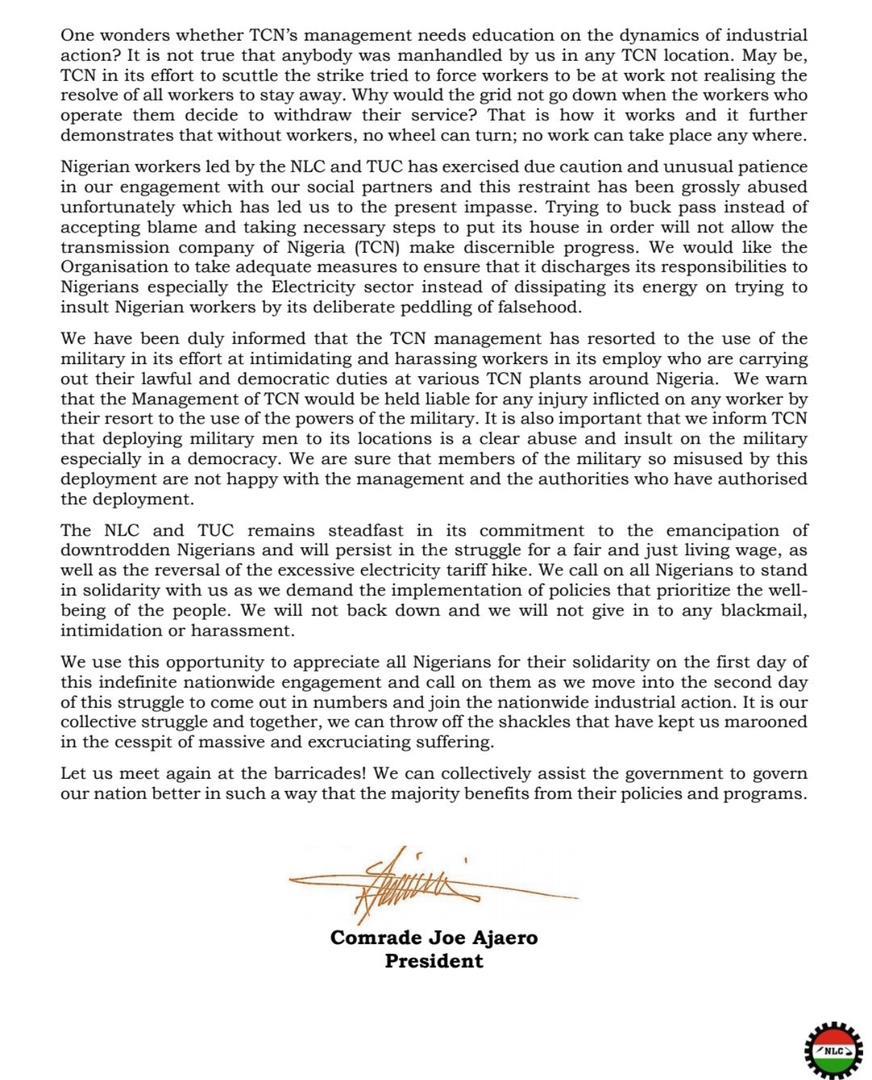
On the other hand, the government highlighted the financial strain caused by the subsidy and the long-term benefits of its removal. They proposed gradual implementation of palliatives, emphasizing the need for time to restructure the economy and implement sustainable measures.
The Agreement: A Ray of Hope
After several rounds of discussions, a tentative agreement was reached. Key components of the agreement included; Wage Adjustments*: The government agreed to review the minimum wage and implement adjustments to reflect the current economic realities. This was seen as a crucial step in alleviating the financial burden on workers.
Fuel Price Reduction*: While a complete reversal of the subsidy removal was not feasible, the government committed to reducing fuel prices by exploring alternative funding mechanisms and reducing taxes on fuel imports.

Transportation Subsidies*: To address the immediate impact on transportation costs, the government pledged to provide subsidies for public transportation, making it more affordable for the average Nigerian.
Essential Goods Subsidy*: A subsidy on essential goods, including food and healthcare products, was agreed upon to help reduce the cost of living for the general population.

Transparency and Accountability*: A joint committee comprising representatives from the government, labor unions, and civil society organizations was established to monitor the implementation of the agreement. This committee was tasked with ensuring transparency and accountability in the utilization of funds saved from the subsidy removal. Continuous Dialogue: Both parties agreed to maintain open lines of communication and hold regular meetings to review progress and address any emerging issues.
Suspension of the Strike
Following the agreement, the NLC and TUC NEC decided to suspend the nationwide strike for one week to allow for the implementation of the agreed-upon measures. This suspension was a strategic move to demonstrate goodwill and provide the government with an opportunity to fulfill its promises.
The suspension of the strike was met with cautious optimism. Workers returned to their jobs, and essential services resumed, bringing a semblance of normalcy to daily life. However, the unions made it clear that the suspension was temporary and contingent upon the government’s adherence to the agreement. They warned that failure to meet the commitments would result in the resumption of the strike with even greater intensity.
Public Reaction and Implications
The public’s reaction to the suspension of the strike was mixed. Many welcomed the return to normalcy and were hopeful that the agreement would lead to tangible improvements in their lives. However, there was also skepticism, given the history of unmet promises and failed policies. The joint committee’s role in ensuring transparency and accountability was seen as crucial in rebuilding trust between the government and the people.
Economically, the suspension of the strike provided a respite for businesses and the economy, which had been severely affected by the shutdown. It also allowed the government to refocus on addressing the underlying issues and implementing the necessary reforms.
Moving Forward: Challenges and Opportunities
The suspension of the strike marks a pivotal moment in Nigeria’s labor history. It underscores the power of collective action and the importance of dialogue in resolving conflicts. However, the road ahead is fraught with challenges.
For the government, the immediate task is to honor the commitments made during the negotiations. This requires not only financial resources but also political will and administrative efficiency. The implementation of wage adjustments, subsidies, and other measures must be timely and transparent to prevent further unrest.
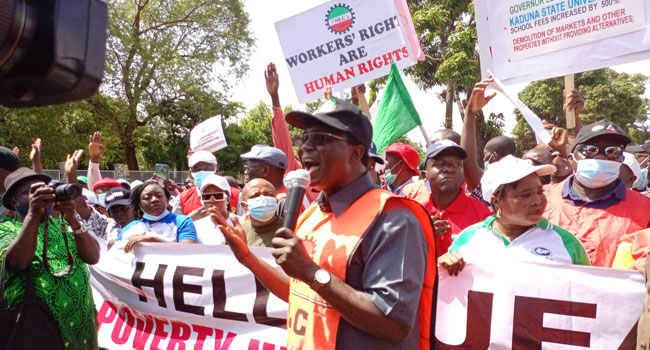
For the labor unions, the challenge lies in maintaining unity and keeping the pressure on the government to deliver on its promises. The unions must also work to educate their members and the public about the importance of sustained engagement and vigilance.
The suspension of the nationwide strike by the NLC and TUC NEC is a significant development in Nigeria’s labor movement. It reflects the power of negotiation and the potential for positive change when both parties are committed to finding solutions. While the agreement reached offers hope, it also sets the stage for continued scrutiny and action to ensure that the promises made are kept. The next week will be crucial in determining the success of this agreement and the future of labor relations in Nigeria.

Written by ‘Jide Adesina
Research and materials by Henry Hunjo, Toyin Abiodun and Gift Chukwuma


